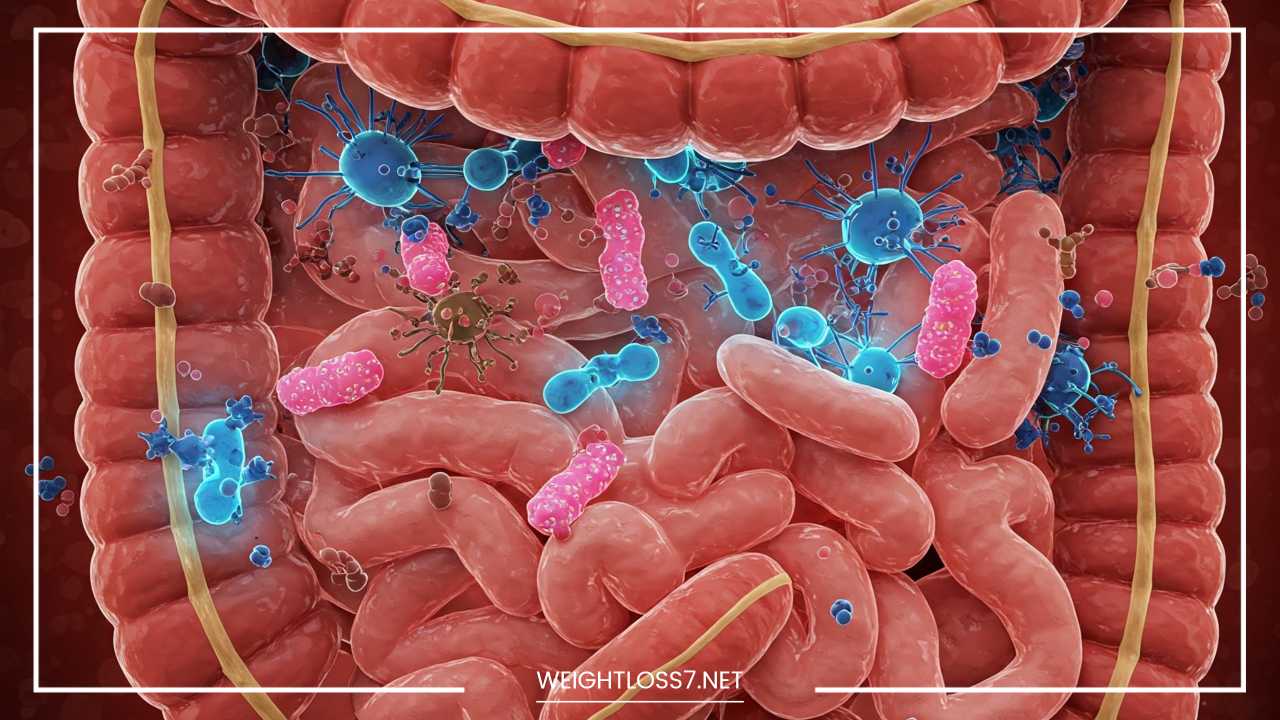Probiotics: Understanding Their Health Benefits and Sources

Probiotics
The Power Within: Unveiling the World of Probiotics
In an era increasingly focused on holistic wellness, the spotlight has firmly landed on the intricate ecosystem residing within our own bodies – the gut microbiome.
Trillions of microorganisms, including bacteria, viruses, fungi, and protozoa, call our digestive tract home, forming a complex community that plays a pivotal role in our overall health.
Among these microscopic inhabitants, a specific group has garnered significant attention for their beneficial effects: probiotics.
The term “probiotic,” derived from the Greek words “pro bios” meaning “for life,” aptly describes these live microorganisms that, when administered in adequate amounts, confer a health benefit on the host.
While the concept of consuming fermented foods for health benefits dates back centuries, the scientific understanding and application of probiotics have witnessed remarkable advancements in recent decades.
This article delves into the fascinating world of probiotics, exploring their mechanisms of action, diverse health benefits, sources, safety considerations, and the exciting future of this burgeoning field.
Understanding the Gut Microbiome: A Foundation for Probiotics
To truly appreciate the significance of probiotics, it’s crucial to first understand the intricate world of the gut microbiome.
This vast and dynamic community is not merely a passive collection of microbes; it’s an active participant in numerous bodily functions.
From aiding in the digestion of complex carbohydrates and the synthesis of essential vitamins like vitamin K and certain B vitamins, to playing a crucial role in the development and regulation of the immune system, the gut microbiome exerts a profound influence on our well-being.
The composition of the gut microbiome is highly individual and influenced by a multitude of factors, including genetics, diet, lifestyle, and antibiotic use.
A healthy gut microbiome is characterized by a diverse and balanced community of microorganisms.
However, disruptions to this delicate balance, known as dysbiosis, can occur due to various factors and have been linked to a range of health issues, including digestive disorders, weakened immunity, and even mental health conditions.
A growing body of research is also revealing that the gut microbiome may influence many aspects of human health beyond digestion, including metabolism, weight management, mental health, and even skin health.
Scientists are only beginning to uncover the vast scope of the microbiome’s influence, but one thing is clear: maintaining a healthy balance within this microbial community is critical to our overall well-being.
Probiotics: Introducing the Beneficial Inhabitants
Probiotics are essentially “good” bacteria and yeasts that, when consumed, can help to restore or maintain a healthy balance of microorganisms in the gut.
They are often referred to as “friendly” or “beneficial” bacteria because they can counteract the effects of harmful bacteria and contribute to a more favorable gut environment.
It’s important to note that not all bacteria are probiotics, and even within the probiotic category, different strains can have different effects.
The specific strain of probiotic is often more important than the genus or species. For instance, Lactobacillus rhamnosus GG has been extensively studied for its benefits in managing diarrhea, while Bifidobacterium lactis HN019 is known for its immune-boosting properties.
Furthermore, probiotics are often misunderstood as a simple solution to poor gut health, but their role is far more nuanced.
The health benefits they offer are strain-dependent and can vary based on the condition being addressed.
As the science evolves, the use of probiotics is being refined to provide highly targeted interventions for a wide range of conditions.
How Probiotics Work: Mechanisms of Action
Probiotics exert their beneficial effects through a variety of complex mechanisms within the gut. While the exact mechanisms are still being elucidated, some of the key ways probiotics work include:
- Modulating the Gut Microbiota Composition: Probiotics can directly introduce beneficial bacteria into the gut, helping to increase their numbers and potentially outcompete harmful bacteria for resources and binding sites in the intestinal lining.
- Producing Beneficial Substances: Certain probiotic bacteria produce short-chain fatty acids (SCFAs) like butyrate, acetate, and propionate. Butyrate, in particular, is a primary energy source for colonocytes (cells lining the colon) and plays a crucial role in maintaining gut barrier integrity and reducing inflammation.
- Enhancing Gut Barrier Function: The gut lining acts as a crucial barrier, preventing harmful substances from entering the bloodstream. Probiotics can help to strengthen this barrier by promoting the production of tight junction proteins that hold the intestinal cells together, reducing “leaky gut.”
- Interacting with the Immune System: A significant portion of our immune system resides in the gut. Probiotics can interact with immune cells in the gut-associated lymphoid tissue (GALT), helping to modulate immune responses. They can promote the production of antibodies, enhance the activity of certain immune cells, and help to regulate inflammation.
- Producing Antimicrobial Substances: Some probiotics can produce substances like bacteriocins, which have antimicrobial activity and can directly inhibit the growth of pathogenic bacteria.
- Competing for Adhesion Sites: Probiotics can compete with harmful bacteria for binding sites on the intestinal lining, preventing the pathogens from colonizing and causing infection.
These mechanisms are crucial for maintaining a balanced microbial ecosystem in the gut. Probiotics do not merely populate the gut; they actively work to create an environment where harmful bacteria struggle to survive.
This interplay between beneficial and harmful microorganisms is key to maintaining a healthy digestive system.
Types of Probiotic Bacteria and Yeasts: A Diverse World
The world of probiotics is incredibly diverse, with numerous species and strains exhibiting unique properties and potential health benefits.
Some of the most commonly studied and utilized probiotic bacteria belong to the genera Lactobacillus and Bifidobacterium.
- Lactobacillus: This genus includes a wide range of species commonly found in fermented foods like yogurt and sauerkraut. They are known for their ability to produce lactic acid, which helps to create an acidic environment in the gut that inhibits the growth of many harmful bacteria. Some well-studied Lactobacillus species include L. acidophilus, L. casei, L. rhamnosus, and L. plantarum.
- Bifidobacterium: These bacteria are often found in the large intestine and are particularly prevalent in infants. They are also known for producing lactic acid and acetate. Common Bifidobacterium species used as probiotics include B. lactis, B. longum, B. breve, and B. infantis.
Beyond bacteria, certain yeasts also exhibit probiotic properties. The most well-known example is Saccharomyces boulardii, a non-pathogenic yeast that has been shown to be effective in managing certain types of diarrhea.
This yeast has unique properties that differentiate it from bacterial probiotics, and it offers a valuable option for people seeking relief from gastrointestinal distress.
As research progresses, the identification of new probiotic strains is expanding, and scientists are continually discovering species that offer benefits beyond the gut.
For instance, emerging evidence suggests that certain probiotic strains might have systemic effects, influencing not only digestive health but also other areas of well-being, such as the immune system and the skin.
Health Benefits of Probiotics: Backed by Science
The scientific literature supporting the health benefits of probiotics is constantly growing. While research is ongoing and more studies are needed in certain areas, there is substantial evidence suggesting that probiotics can be beneficial for a variety of health conditions:
- Digestive Health: Probiotics have been extensively studied for their role in managing various digestive issues. They have shown promise in reducing the symptoms of irritable bowel syndrome (IBS), including abdominal pain, bloating, and altered bowel habits. Probiotics can also help to prevent and treat antibiotic-associated diarrhea (AAD) by restoring the balance of gut bacteria disrupted by antibiotics. Furthermore, they may be beneficial in managing inflammatory bowel disease (IBD) like Crohn’s disease and ulcerative colitis, although the specific strains and dosages required may vary. Probiotics can also help to alleviate constipation by increasing stool frequency and improving gut motility.
- Immune System Support: Probiotics play a crucial role in modulating the immune system. They can help to enhance the body’s natural defenses against pathogens, potentially reducing the incidence and severity of respiratory infections like the common cold and flu. Certain probiotic strains have also shown promise in managing allergies and eczema by influencing immune responses.
- Mental Health: The connection between the gut and the brain, often referred to as the gut-brain axis, is a rapidly evolving area of research. Studies suggest that probiotics may influence brain function and mental health by modulating the gut microbiota and its communication with the central nervous system. Some research indicates potential benefits of probiotics in reducing symptoms of anxiety and depression, although more robust studies are needed.
- Oral Health: Certain probiotic strains have been shown to improve oral health by reducing the levels of harmful bacteria in the mouth that contribute to tooth decay, gum disease, and bad breath. Probiotic lozenges and mouthwashes are emerging as potential tools for maintaining oral hygiene.
- Skin Health: The gut-skin axis is another area of growing interest. Some studies suggest that probiotics may have a positive impact on skin health by reducing inflammation and improving the skin barrier function. They may be beneficial in managing conditions like acne, eczema, and rosacea.
- Other Potential Benefits: Research is also exploring the potential role of probiotics in other areas, such as weight management, by influencing metabolism and satiety; vaginal health, by restoring the balance of vaginal microbiota; and even in improving nutrient absorption.
The range of conditions in which probiotics are showing promise underscores their importance in modern healthcare. As new studies emerge, the scope of their therapeutic potential continues to expand.
Sources of Probiotics: From Food to Supplements
Probiotics can be obtained through various dietary sources and supplements.
- Fermented Foods: Many traditional fermented foods are naturally rich in probiotics. Some excellent sources include:
- Yogurt: Especially those with “live and active cultures” listed on the label.
- Kefir: A fermented milk drink with a higher diversity of probiotic strains than yogurt.
- Sauerkraut: Fermented cabbage.
- Kimchi: A Korean dish made from fermented vegetables, typically cabbage and radish.
- Kombucha: A fermented tea drink.
- Tempeh: Fermented soybeans.
- Miso: Fermented soybean paste.
- Pickles (naturally fermented): Not all pickles are fermented; look for those made using traditional methods.
These foods not only provide probiotics but also offer a wealth of other nutrients that contribute to overall health, making them an excellent addition to any diet.
- Probiotic Supplements: Probiotic supplements are available in various forms, including capsules, tablets, powders, and liquids. They often contain a higher concentration of specific probiotic strains than fermented foods. When choosing a probiotic supplement, it’s important to consider:
- Strain Specificity: Different strains have different effects, so choose a supplement that contains strains relevant to your specific health needs.
- CFU Count: CFU stands for Colony Forming Units and indicates the number of live bacteria per serving. A higher CFU count doesn’t always mean a better product, but generally, a count in the billions is considered beneficial.
- Quality and Purity: Look for reputable brands that adhere to good manufacturing practices and ideally undergo third-party testing for quality and purity.
- Storage Instructions: Some probiotics require refrigeration to maintain their viability.
Who Can Benefit from Probiotics? Considerations for Different Individuals
While generally considered safe for most healthy individuals, the potential benefits of probiotics can vary depending on individual needs and health conditions.
- Individuals with Digestive Issues: Probiotics can be particularly beneficial for those experiencing symptoms of IBS, AAD, constipation, or other digestive disturbances.
- People Taking Antibiotics: Taking probiotics during and after antibiotic treatment can help to replenish the beneficial gut bacteria that may be killed off by the antibiotics.
- Those Looking to Support Their Immune System: Probiotics can help to strengthen the immune system and potentially reduce the risk of infections.
- Infants and Children: Certain probiotic strains have been shown to be safe and beneficial for infants and children, particularly in managing colic, diarrhea, and eczema. However, it’s crucial to consult with a pediatrician before giving probiotics to infants and young children.
- Adults and Elderly: Probiotics can be beneficial for adults of all ages, supporting digestive health, immunity, and overall well-being. In the elderly, probiotics may help to improve nutrient absorption and reduce the risk of certain infections.
Safety and Side Effects of Probiotics: A Generally Safe Approach
Probiotics are generally recognized as safe (GRAS) for most healthy individuals when consumed in typical amounts.
However, some people may experience mild and temporary side effects, such as gas, bloating, or mild digestive discomfort, particularly when first starting to take probiotics. These side effects usually subside within a few days as the body adjusts.
In rare cases, individuals with severely compromised immune systems, such as those undergoing chemotherapy or organ transplantation, may be at a slightly increased risk of adverse effects from probiotics.
It’s crucial for these individuals to consult with their healthcare provider before taking probiotic supplements.
The Future of Probiotics Research: A Promising Horizon
The field of probiotics research is rapidly evolving, with exciting new discoveries being made constantly. Some of the key areas of future research include:
- Personalized Probiotics: As our understanding of the individual gut microbiome deepens, the future may see the development of personalized probiotic interventions tailored to an individual’s specific microbial profile and health needs.
- Strain-Specific Applications: Research is increasingly focusing on identifying specific probiotic strains that are most effective for particular health conditions. This will allow for more targeted and effective probiotic interventions.
- Role in Disease Prevention and Treatment: Ongoing research is exploring the potential role of probiotics in preventing and treating a wider range of diseases, including autoimmune disorders, metabolic diseases, and even cancer.
- Advancements in Understanding the Gut Microbiome: Continued research into the complex interactions within the gut microbiome will provide a deeper understanding of how probiotics exert their effects and pave the way for novel applications.
Final Thoughts: Embracing the Power Within
Probiotics represent a fascinating and promising area of research with significant implications for human health.
These beneficial microorganisms play a vital role in maintaining a healthy gut microbiome, which in turn influences numerous aspects of our well-being, from digestion and immunity to mental health and beyond.
By incorporating probiotic-rich foods into our diet and considering targeted supplementation under the guidance of a healthcare professional, we can harness the power within and contribute to a healthier and more balanced life.
As research continues to unravel the intricate world of the gut microbiome, the potential of probiotics to improve human health is only set to grow, offering a natural and holistic approach to well-being.

















